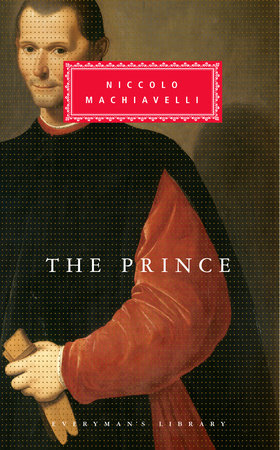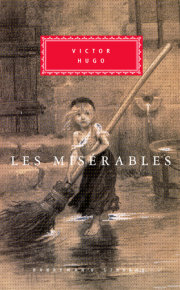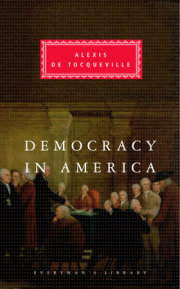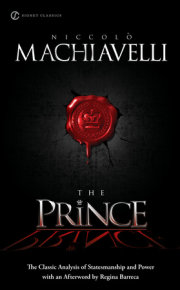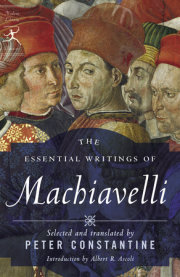Niccolò Machiavelli to His Magnificence Lorenzo de’ Medici1
Those who wish to win the favor of a prince will generally approach him with gifts of what they value most or what they believe will most delight him. Hence we see princes being offered horses, arms, vestments of gold, precious stones, and similar accoutrements worthy of their grandeur. Wishing to present myself to Your Magnificence with a token of my deepest respect, I have found among my possessions nothing that I value or esteem higher than my knowledge of the deeds of great men. I have acquired this knowledge through my long experience of modern affairs and a lifelong study of ancient times, all of which I have weighed and examined with great diligence and brought together into this small volume, which I am now offering to Your Magnificence. Though I deem this work unworthy of being in Your illustrious presence, my confidence in Your benevolence persuades me that it will be accepted, and that Your Magnificence will recognize that I cannot offer You a greater gift than the prospect of Your understanding in the shortest period all that I have experienced and learned over so many years and with so much danger and hardship. I have not filled this volume with pompous rhetoric, with bombast and magnificent words, or with the unnecessary artifice with which so many writers gild their work. I wanted nothing extraneous to ornament my writing, for it has been my purpose that only the range of material and the gravity of the subject should make it pleasing. Nor do I wish it to be thought presumptuous that a man of low and humble condition like myself should presume to map out and direct the government of princes. But just as a cartographer will descend into the plains in order to study the nature of the mountains, and will then climb the highest peaks in order to study the low-lying land, so, too, only an exalted prince can grasp the nature of the people, and only a lesser man can perceive the nature of a prince.
I hope therefore that Your Magnificence will accept this humble gift in the spirit in which it is offered. Should You condescend to read and consider it carefully, You will perceive in its pages my profound desire that Your Magnificence will rise to the greatness that Fortune and Your qualities promise. And should Your Magnificence deign to look down from the lofty summit of Your eminence to these lowly depths, You will see how I have suffered undeservedly Fortune’s great and continuing malignity.
1. Lorenzo de’ Medici (1492—1519) was the grandson of Lorenzo the Magnificent.
Chapter One
Of the kinds of principalities that exist, and how they can be acquired
All states, all dominions that rule or have ruled over men, are or have been either republics or principalities. Principalities are either hereditary, with a long-established bloodline, or new. And the new principalities are either entirely new, as Milan was to Francesco Sforza2, or are like limbs added to the hereditary state of the prince who acquires them, as the Kingdom of Naples was to the King of Spain3. States obtained in this way are accustomed either to living under a prince, or to being free. They are acquired either with the arms of others, or with one’s own, either by chance or by skill.
2. Francesco Sforza (1401—66) was a soldier of fortune who became Duke of Milan in 1450.
3. Ferdinand the Catholic (1452—1516), King of Aragon, also became Ferdinand III of Naples in 1504.
Chapter Two
Of hereditary principalities
I will not discuss republics, as I have already done so at some length elsewhere. I shall only concentrate on principalities, and shall weave together the threads I have already laid out. I will show how these principalities can be governed and main- tained.
First, states that are hereditary and tied to the bloodline of their prince are easier to maintain than new ones. It is enough not to diverge from the practices of one’s forebears, and to handle unforeseen issues as they arise. If such a prince is of at least average ability he can retain his posi- tion of power, so long as no extraordinary or excessive force deprive him of it. If this prince is deprived of his state, he will find he can reacquire it if any misfortune befalls the usurper.
In Italy we have the example of the Duke of Ferrara, who resisted the assaults of the Venetians in 1484 and of Pope Julius II in 1510, for the simple reason that he had inherited an ancient principality4. A hereditary prince has less cause to mistreat his subjects, and so is more loved by them. If unusual vices do not make him hated, it is to be expected that he will be loved by his people.
The long continuum of the dominion obliterates the memories and issues that make men yearn for innovation, for one change will inevitably forge a link to another.
4. In fact, Duke Ercole d’Este of Ferrara managed to end the war with Venetians in 1484, while his son Duke Alfonso managed to stay in power despite excommunication and an ongoing war with the papal forces.
Chapter Three
Of mixed principalities
It is in the new principality that the difficulties lie. First, if the principality is not completely new, but is like a limb or extension added to another principality (in which case we could almost call the whole state a mixed principality), its volatility stems mainly from a difficulty inherent in all new principalities. This is that men will willingly change their ruler in the hope that they will fare better, a hope that leads them to take up arms against their old ruler. But in this they are deceived, because, as they invariably discover, their lot under a new ruler is inevitably worse. This is the result of another natural and basic inevitability: that you cannot avoid offending those whose new ruler you are, both with your armed soldiers and with innumerable other provocations that come in the wake of a conquest. You end up making enemies of all those you have offended during your conquest of the principality, and you find that you cannot keep the friendship of those who helped you to power, since you cannot satisfy them in the way they had envisioned. Furthermore, you cannot take strong measures against them, as you are indebted to them. Even with the most powerful army, if you want to invade a state, you need the support of the people. It was for these reasons that King Louis XII of France was quick to occupy Milan, and just as quick to lose it. Duke Ludovico’s own forces were enough to win Milan back the first time, because the same masses that had opened the gates for Louis, finding themselves misled in their hopes for a better future, could not endure the new prince’s offenses5.
It is a fact that once a prince acquires a rebellious state for the second time, it also proves harder to lose that state a second time6. This is because the prince who seizes the opportunity of the rebellion has fewer scruples about securing his position by punishing offenders, flushing out suspects, and strengthening all the places where he is weakest. In this sense, it was enough for a Duke Ludovico to make a little noise along the borders for Louis XII to lose Milan the first time. But for him to lose Milan a second time the whole world had to unite against him, defeat his army, and chase it out of Italy7. This followed from the causes I have already laid out. Nonetheless, both the first and second time, Milan was taken from him.
The general reasons for the first loss have been discussed. It now remains to discuss the second, and to see what recourse someone in Louis’s position could have taken to maintain himself more securely in his new acquisition. I must stress that the states a prince acquires and adds to his own are either of the same country and language, or are not. If they are it is much easier to retain them, particularly if they are not used to freedom. To hold them securely, it is enough to extinguish the line of the previous prince who ruled them. As for the rest, if the new acquisition’s former state of affairs is kept and there is no difference in customs, men will live quite peacefully, as we have seen in Burgundy, Brittany, Gascony, and Normandy, which for a long time now have all belonged to France. Although there is some difference in language, their customs are similar, and their people get along with one another quite easily. He who acquires such states and wishes to retain them has to make sure of two things: that the bloodline of their former princes is extinguished, and that their laws and taxes remain the same. This way, the prince’s new state merges with the old, quickly becoming a single body.
But difficulties arise when you acquire states in a land with differing languages, customs, and laws. To keep these states, you need good fortune and much diligence. One of the best and quickest solutions is for the new prince to go and live in his new state. This makes the possession more durable and secure. The Turk did this in Greece8. With all the other measures he took to keep Greece in his possession, had he not gone to live there he would not have succeeded, because once the prince is established within his new state he is able to see problems as they arise and can remedy them. If he is not there, problems become obvious only once they are dire and can no longer be remedied. Furthermore, if he is present, his new state will not be looted by his officials, and his new subjects can enjoy immediate access to their prince. This will give them more reason to love him if they are on his side, and to fear him if they are not, and foreign powers wishing to attack his state will respect him more. Hence, if the prince lives in his new state, it is difficult for him to lose it.
Another efficient remedy is to set up colonies in one or two places that will act as the shackles of your new state. If you do not set up colonies, you will have to send a great number of troops to secure it, while a colony can be established and maintained at negligible cost. The only subjects who will be affronted are those whose fields and houses will be confiscated to be given to the new colonists. But these dispossessed subjects make up only a small part of the state and will end up poor and dispersed, and so can do no harm. The rest of your new subjects will not be affronted (and hence will be acquiescent), but will also be frightened of transgressing, worried that they too might be dispossessed. I conclude that colonies do not cost much, are loyal, and will cause less trouble. And as I have already mentioned, those you dispossess cannot harm you, as they will be poor and dispersed. In short, men must either be flattered or eliminated, because a man will readily avenge a slight grievance, but not one that is truly severe. Hence, the offense done a man must be of the kind that cannot incur vengeance.
If you choose armed forces instead of colonies, you will spend more and will have to squander all the income from the new state in order to pay the army. This will turn the acquisition into a loss, and all your new subjects will end up offended, since an army, constantly on the move and constantly requartered, hurts the whole state. Everyone feels the pain, and everyone becomes your enemy. And these are enemies who can harm you, because though they have been defeated, they remain on their own ground. So in every sense, using armed forces is as useless as setting up colonies is useful.
It is also important when a prince has conquered a foreign state that he become the protector of the surrounding weaker powers, and do all he can to weaken the stronger ones. He must take precautions so that no foreigner equal in power manages to enter his new state. If he should enter, it will be because he was brought in by discontented factions driven by ambition or fear. We saw this in the case of the Aetolians who introduced the Romans into Greece;9 and in every other province in which the Romans set foot, it was with the help of some of the inhabitants. The order of things is that the moment a powerful invader takes over a state, all the weaker factions within it join forces with him, spurred on by their envy of the ruler who had wielded power over them before. In other words, the new prince has no trouble winning the weaker factions over, because they will willingly become part of his new state. He has only to see to it that they do not gain too much power and authority. With his forces and their favor, he can easily bring down those who are powerful so that he will remain the only arbiter in the land. He who does not follow this course will quickly lose all he has gained, and will be plagued by infinite difficulties while he holds power.
5. Louis XII occupied Milan in September 1499, but was ousted in February 1500 by Ludovico Sforza. Louis, however, managed to recapture Milan within two months.
6. Once Louis XII recaptured Milan, it remained under his rule until 1512.
7. The Holy League of 1511, organized by Pope Julius II, was an anti-French coalition that included Spain, Venice, the Holy Roman Empire, England, and the Swiss. The League managed to drive the French out of Milan in May 1512.
8. The Turks occupied Constantinople in 1453, and in 1457 transferred the capital of the Ottoman Empire from Edirne to Constantinople.
Copyright © 2008 by Niccolo Machiavelli. All rights reserved. No part of this excerpt may be reproduced or reprinted without permission in writing from the publisher.

